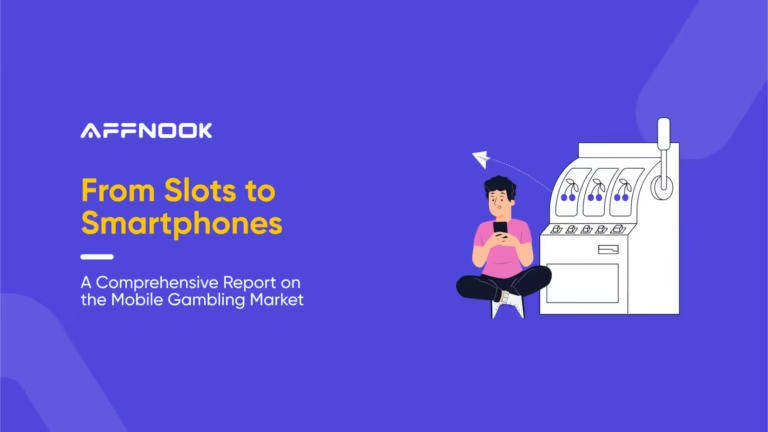A phenomena of epic proportions unfolded in the 2024 presidential election. Besides Trump getting re-elected in a landslide victory, betting experienced a great election. And the wins went much beyond what was wagered on Polymarket and Kalshi.
Trump had 98.3% of the entire election betting market’s aggregated odds in his favour as the results rolled in. At the same time, he had already secured 247 electoral votes. Harris was trudging along at 214. Already, the conversation has shifted. Trump was likely the winner, even though 5 more swing states were yet to be counted.
The Market Held Sway
Headlines like “Trump is already a winner according to betting market odds” and “Trump retakes betting lead over Harris in presidential election odds ahead of debate” appeared constantly, keeping the elephant in the room.
What happened next cemented wagering into public consciousness, turning it into a mainstay even beyond elections.
Now, bets are being placed on pretty much everything. Polymarket is taking bets on the future of Luigi Magione, the alleged shooter of UnitedHealthcare’s CEO. Odds have been placed on how the movie ‘Wicked’ will perform on Rotten Tomatoes. Wagers are ongoing, with a 40% probability that Taylor Swift is going to launch her next album in 2025.
But where did it begin?
How Betting Evolved in North America
The tribal ceremonies of the Native Americans seem to have games of chance being played, much before the colonizers arrived ashore. Cheyenne tribesmen participated in a game called monshimout. The Arapaho and New England tribesmen had a version of the same, called hubbub.
When Englishmen settled in the Americas, gambling traditions from Europe travelled with them to the new world. From horse racing to cock and bull fighting, bull baiting, card games, and dog fighting became popular ways to wager.
The Earliest Lottery
The first lottery was set up by King James I, to fund the first permanent British settlement in America, leading to the creation of Jamestown, North Carolina. This was a common method to fund settlement in British colonies across the world; a process which contributed to the development of schools, hospitals, offices, roads and more globally.
Then, gambling began to pose a big challenge in European countries. Men were gambling away large sums of money, titled land and even their titles. The frequent ownership changes were beginning to affect the economy. As a result, legal changes were made to ensure large losses were void — a law which is still referred to in US court cases.
Regulations Come into the Picture
A surge in Evangelical thought swept through the English world. Laws passed by the Continental Congress sought to discourage all kinds of betting behaviours. However, certain exceptions were made for ‘gentlemen’. During this period, New Orleans emerged as a centre for gambling. Louisiana soon followed.
The USA became a country. State and other lotteries, gambling activities, casino gambling and most other forms of the sport were soon mired in controversy, rampant with fraud and scandals. The Old West rose and fell, leading into the industrial age. All the while, regulations see-sawed across the entire region – going from legal to illegal, and back again – till all lotteries, gambling and so on were shut down in the early 1900s.
The Modern Era
In the 1930s, interest grew again. Nevada became the pioneering state in legalisation. 30 miles from Las Vegas, the Hoover Dam was being constructed. In 1931, the first gambling license was issued and in 1941, the first big casino was set on what would eventually become ‘the Strip’.
The boom came once Prohibition and the second World War ended. The Nevada Gaming Control Board was formed.
By the mid-1990s, 10 states had legalised casino gambling. State lotteries, too, were back in fashion. The internet began to grow, and with it, website-based gambling took off. By 2008, Internet-based gambling was estimated to be worth $21 billion.
Presidential Election Betting in 2024
CFTC vs Kalshi
A regulated commodities exchange, KalshiEx LLC, offered ‘Congressional Control Contracts’ to allow individuals to bet on the outcome of the US Presidential Election of 2024. The Commodity Futures Trading Commission (CFTC) disallowed them, stating this was ‘election gambling’, which was illegal across several states.
Kalshi contested this decision in the U.S. District Court for the District of Columbia as arbitrary, under the Administrative Procedure Act. The court ruled in its favour, stating the CFTC was wrong in its proclamation. It shared that “gaming” wouldn’t be applicable to election contracts, and these contracts were not themselves illegal under state law.
The CFTC then sought a stay on the court’s order in the United States Court of Appeals for the District of Columbia Circuit through an emergency motion. The motion was denied on the grounds that CFTC was unable to demonstrate the “public would suffer irreparable harm”.
Speculative concerns about potential market manipulation and election integrity were dismissed as they were not backed by evidence. The court also held that CFTC could appeal the decision if it had more concrete evidence of irreparable harm.
How does Election Betting actually work?
Election betting sites give users the chance to buy contracts based on the odds of a particular candidate winning an election. Each contract, for instance, may pay $1 if the selected candidate wins, and $0 if the chosen candidate loses.
As an example, a contract betting on Trump may have cost about $0.57, while one for Harris could be priced at $0.44 on Robinhood. Irrespective of the actual price of the contract, the payout would remain simple: $1 secured for a correct bet and $0 for an incorrect one, creating a straightforward binary outcome for bettors.
Your Choice of Platform Matters
The amount users can bet depends heavily on the platform they use. On Robinhood 5,000 contracts per user could be taken in each election market, giving bettors a larger opportunity to place bets. In contrast, PredictIt had a smaller limit of $850 per user on each market, offering a more limited scope for making money on the outcome.
The payout timing also differed depending on the platform. For example, Polymarket paid out when major news organizations like the Associated Press, Fox News, and NBC News all called the election in favor of one candidate.
Robinhood settled bets on January 7, the day after Congress officially certified the election results. Kalshi, another platform, shared that it would pay out on January 20, the day of the inauguration.
PredictIt, on the other hand, paid when any uncertainty around the election result was resolved, which could have varied based on the situation. This variation in platforms and payout schedules adds complexity to the election betting landscape, while also creating multiple options for bettors to choose from.
Bets in these markets are bids on political futures contracts. This means that buying a contract on an outcome – like the prospect of Trump regaining the presidency – drives the price of that contract, or the perceived likelihood of it happening, higher.
Does it Matter What the Markets Say?

The outcome certainly gives the betting market some authority. However, what makes this claim stronger is the disparity between polling predictions, political analysis and statistical models from experts, and the line drawn by the betting odds.
Polymarket “was a good two, three hours ahead of the media,” its CEO Shayne Coplan shared on CNBC after Trump’s win. The vindication of the betting sites has created several debates about the effectiveness of the existing system of polls forecasting in elections.
Economists contended that bettors were motivated by the potential of personal gain to incorporate any new information available as quickly as possible into their wagers.
The Chicken or Egg Question in Election Betting
Another interesting question emerged much earlier in the race. Would the wagers placed by voters influence how they voted? Since the odds consistently favoured one candidate over the other, often by significant margins, allegations about manipulation and herd mentality were raised by many.
Many wondered whether there was any depth to the claims of the champions of election betting in the first place. “It’s pure gambling. Election betting can forecast the future no better than gambling whether or not you’ll get 21 in blackjack,” said Cantrell Dumas, director of Derivatives Policy at Better Markets. He further stated that it was preposterous to think that gamblers were able to call the election.
What’s next for Election Betting?
Kalshi’s CEO, Tarek Mansour, sees the result as “astronomical”. Netting over $1 billion in trades this election season, he wishes to see hundreds of billions of dollars in the next presidential election.
The commodities exchange is currently in the works to add “close to 100” new markets to its platform on a daily basis. There are also plans to launch combination-based markets, where several related outcomes can be clubbed together for bigger wins. For instance, next time, bets can be placed on Trump winning the election and pardoning 100 incarcerated individuals in his first year.
The Next Round of Election Bets
There is no dearth of items which can be wagered when it comes to elections. From who will be assigned what portfolio in Trump’s cabinet to likely policy changes and even what his first action will be as president. For example, users had bet up to $6.5 million on Trump’s pick for Secretary of Defense by the end of the first week of December.
Elections occur at regular but heavily spaced out intervals. As a result, even if election betting becomes a mainstay, it can only be driven at certain times. To make wagering on democratic outcomes a pervasive affair, platforms and brokers will have to develop innovative betting formats and engage citizens regularly to ensure traffic on their platforms when it matters most.
Some Challenges Lie Ahead
1. Lack of Existing Regulations
Looser regulations means more brokerages will join this space. This is not only a likely outcome but a certainty, as Kalshi has reported significant growth in non-political trades. However, less regulations, too, can spell trouble. Unsecured bets, lack of rules and unplanned growth can cause serious economic implications in the midst of chronically slow growth and stagnant wages.
2. Increase in Market Manipulation
Fortune reported that analysts at two crypto research firms found a lot of wash trading (when users buy and sell their shares quickly to create a false impression of heavy volume) on the Polymarket platform. Reports suggested that close to one-third of the volume reflected on it may be artificially created. A lack of clear oversight and checks on private players in the prediction market, especially when it comes to election prediction could add volatility.
3. Retail Traders will be Losers
A French trader reportedly placed a bet of about $45 million on Trump on Polymarket. Prediction markets, like stock markets, could help some create wealth. However, novice bettors, swayed by volumes, could become huge, regular losers on an ever growing number of opaque platforms.
4. Speculation-driven Market
Group think is another implication feared by many. Low information, market driven actions on a local, state or national level — simply because they’re believed to be a reflection of public opinion, rather than the public actually sharing their opinion — can lead to short-sighted outcomes, which gravely affect all citizens. Only about one in four people in the world actually gamble, which makes this a particularly slippery slope.
Maxim Lott, the founder of ElectionBettingOdds.com shared that bets were already being placed for the outcomes of elections set to take place much further into the future, such as the 2028 Presidential Election. However, the odds on these outcomes can be ignored for now, since a lot depends on the next 4 years.
Way Forward
Election betting and predictions based on market sentiments is not a new phenomenon. “Of the 15 presidential elections between 1884 and 1940, the betting market correctly calls the race in 11,” NPR’s former gambling correspondent and current editor Keith Romer has shared. “It’s too close to call in three. And they only get one wrong.”
Prediction markets, post the Kalshi case, have only brought it back into fashion. Nothing said this louder than the Trump campaign actually following Polymarket predictions – a fact shared by the company’s CEO who claims he even fielded calls from Mar-a-lago on the night results opened.
In a broader sense, taking a look at what is ongoing in such markets is beneficial to be better informed about the world, and the ground level reality of what regular people see as real outcomes. Prediction markets are staking claims on when the war in Ukraine will end and what the next probable action will be in the Gaza conflict.
Additionally, many investors see this as an opportunity to diversify their portfolios while managing risk. Kalshi’s CEO believes these can act as creative vehicles to hedge risks for “high-net-worth individuals” at investment banks.
However, government pushback is likely and more regulations are on the horizon.
“Your belief about whether a candidate is viable, is doing well, is likely to prevail, can affect things like fundraising, support, the enthusiasm, volunteer effort and so on,” believes Rajiv Sethi, an economics professor from Barnard College. “These things can actually affect the actual outcome of the election.”
Help Centre
What is election betting and how does it work in the US?
Users to buy contracts predicting political outcomes such as who will win the race, along with other politically-relevant outcomes. In the USA, the running candidate and VP combination is also a popular wager to be placed. Each contract pays a fixed amount if the outcome occurs and nothing if it doesn’t. Prices fluctuate based on perceived probability, functionally similar to other types of betting outcomes.
How did betting markets stand versus polls in 2024?
The pace of information was much quicker in the markets. Some saw the markets as being more accurate too. Platforms like Polymarket reflected Trump’s likely victory hours before major media outlets, fueling debates about whether market-driven predictions are more accurate than traditional polling and statistical forecasting models.
Which were the most popular election betting platforms in 2024?
Polymarket, Kalshi, PredictIt, and Robinhood were all common choices for those who wagered on the outcomes of this election.
How do odds from this type of betting influence public perception?
Perceived outcomes can bend public will and sway voters into acting one way or another. Media coverage of odds may influence fundraising, enthusiasm, and voter confidence, raising concerns about feedback loops where market sentiment affects real-world political behavior rather than merely reflecting it.



